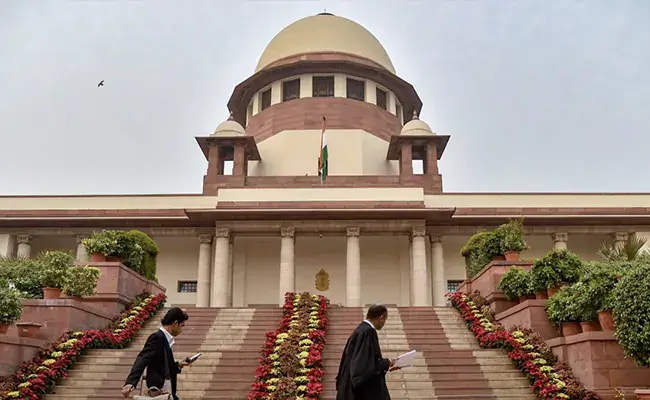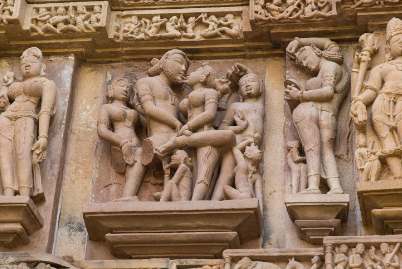Introduction
Divorce is never an easy decision, but for some couples, it’s the only option. Recently, the Supreme Court gave advice to a Bengaluru techie couple seeking divorce. The advice was given in response to a plea by the husband, who wanted the divorce to be granted on the grounds of cruelty. The Supreme Court‘s advice has garnered attention from all corners, with many people wondering what it entails.
In this article, we’ll take a closer look at the Supreme Court’s advice to the Bengaluru techie couple seeking divorce. We’ll explore what the advice means, what you need to know if you’re in a similar situation, and some frequently asked questions about divorce in India.
What was the Supreme Court’s advice to the Bengaluru techie couple seeking divorce?
The Supreme Court’s advice to the Bengaluru techie couple seeking divorce was to try and resolve their issues through mediation. The court suggested that the couple seek the help of a mediator to resolve their differences and come to a mutual agreement about their divorce.
The court also emphasized that divorce should always be a last resort and that couples should try and resolve their issues through other means before seeking a divorce. The court stated that divorce is a traumatic experience for everyone involved, and it should only be considered when all other options have been exhausted.
What is mediation?
Mediation is a process where a neutral third party helps two or more parties resolve a dispute. The mediator does not make decisions for the parties but rather facilitates communication and helps the parties come to a mutually acceptable agreement.
In the case of a divorce, a mediator can help the couple resolve issues related to property, finances, and child custody. Mediation can be a useful tool for couples who want to avoid the stress and expense of a court battle.
What are the benefits of mediation?
There are several benefits to mediation, including:
- Cost-effective: Mediation is often less expensive than going to court.
- Time-efficient: Mediation can be scheduled at a time that works for both parties, making it a more efficient process.
- Confidentiality: Mediation is a confidential process, which means that anything discussed during the mediation cannot be used in court.
- Control: Mediation gives the parties more control over the outcome of the dispute, rather than leaving the decision in the hands of a judge.
Conclusion
Divorce is never an easy decision, but for some couples, it’s the only option. The Supreme Court’s advice to the Bengaluru techie couple seeking divorce was to try and resolve their issues through mediation before considering a divorce.
Mediation can be a useful tool for couples who want to avoid the stress and expense of a court battle. It’s important to remember that divorce should always be a last resort and that couples should try and resolve their issues through other means before seeking a divorce.
If you’re considering a divorce, it’s important to understand the legal requirements and process for getting a divorce in India. Seeking the advice of a qualified lawyer can help you navigate the process and ensure that your rights are protected.
In summary, the Supreme Court’s advice to the Bengaluru techie couple seeking divorce highlights the importance of considering alternative methods for resolving disputes before seeking a divorce. Mediation can be an effective tool for couples who want to avoid the stress and expense of a court battle, and it’s important to understand the legal requirements and process for getting a divorce in India.
FAQs
Here are some frequently asked questions about divorce in India:
- What are the grounds for divorce in India?
There are several grounds for divorce in India, including cruelty, desertion, adultery, and mental illness. The Supreme Court’s advice to the Bengaluru techie couple seeking divorce was based on the grounds of cruelty.
- How long does it take to get a divorce in India?
The time it takes to get a divorce in India depends on several factors, including the grounds for divorce and whether the divorce is contested or uncontested. Generally, it takes at least six months to get a divorce in India.
- What is the process for getting a divorce in India?
The process for getting a divorce in India involves filing a petition for divorce with the appropriate court. The court will then issue a notice to the other party, and the parties will attend a series of hearings to discuss the terms of the divorce.
- What are the legal requirements for getting a divorce in India?
To get a divorce in India, the parties must meet certain legal requirements, including:
- Being married for at least one year
- Residing in India for at least one year before filing for divorce
- Meeting the grounds for divorce as laid out in the Hindu Marriage Act, 1955 or the Special Marriage Act, 1954.
- Can a divorce be granted without going to court?
Yes, it is possible to get a divorce without going to court through a process called mutual consent divorce. In this process, both parties agree to the terms of the divorce and file a joint petition for divorce with the court.
READ MORE ABOUT: Supreme Court Accepts Lalit Modi’s “Unconditional Apology”, Closes Case










